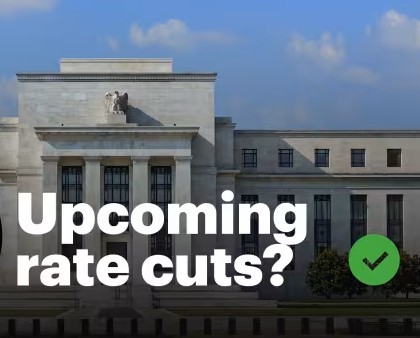If you find yourself as a Buyer in a Seller’s market, you better know how to compete if you are serious about securing the property you really want to buy. In my earlier article, Submitting a Competitive Offer in a Seller’s Market, I discussed several methods to make your offer really stand out. Of course, one of the most powerful techniques to make your offer stand out is to submit an all-cash offer.
I know what you are thinking, “I don’t have the cash to make an all-cash offer”. The truth is you probably have access to the money and don’t even know it. If you’ve already been qualified for a mortgage loan, then you’ve been poked, prodded, and evaluated on your ability to afford that loan. You’ve submitted documents and had everything verified including your down payment, your income, your ability to make loan payments, etc. And the corporate powers-that-be have blessed you with the privilege of a mortgage loan. Going through this process also makes you an attractive borrower to the unconventional lenders.
What you probably haven’t been told is that there are many ways to finance a home purchase. One other way to is submit an all-cash offer, based on a financing package of your own design. It may involve a traditional mortgage of course, but also some out-of-the-box financing opportunities could be available to you.
Here’s how it works…
Let’s say you want to buy a $1,000,000 home and you have a $200k (20%) down payment. Normally, you’d go to an institutional bank and borrow the remaining $800k. But a conventional loan from big institutional bank takes a long time, requires an appraisal, has strict underwriting guidelines, and requires the property itself to meet certain criteria. On the other hand, a hard money loan requires none of this. So, in this case you use $800k from a hard money lender to add to your $200k down payment and you can submit a very attractive, all-cash offer and really make your offer stand out from the crowd.
That’s the simple version of course. Make sure you read this short article on all the pros and cons of using a hard money loan. And make sure you’re working with someone that has successfully executed transactions with this strategy in the past and understands all the nuances of it. Proper presentation of an offer like this to this listing agent is critical. What your broker says and when he says it will make or break the deal.
This strategy in summary looks like this:
- Write an all-cash offer using your down payment plus a hard money bridge loan.
- Have experienced broker present offer to seller.
- Get the offer accepted as a result of your much stronger offer.
- Process your institutional loan concurrently during the escrow period.
- Refinance out of your bridge loan ASAP after closing *
a. * or possibly close with institutional loan if it is ready to fund in time. See Note below.
Now, let’s talk about the terms of this unique type of bridge loan according to the hard money lender with which we have a commitment.
| Max loan amount: | $1,000,000 |
| Max LTV: | 80% |
| Rate: | 12% |
| Fees: | 2 pts. |
| Extension Fee: | 1 pts. past 90-days for max of another 90 days |
| Term: 90-DAYS | 90-DAYS |
| Occupancy: | Must be non-owner occupied for duration of loan. |
| Pre-Pay Penalty: | None |
| Admin Fee: | $3000 (only due if hard money loan NOT used) |
Let’s talk about each one of these terms.
- Max. Loan Amount: This is the maximum amount the hard money lender will loan regardless of your amount of your down payment.
- Max. LTV: This is the maximum Loan to Value ratio the hard money lender will allow. In other words, he will loan up to 90% of the purchase price and you must come up with at least the remaining 10%.
- Term: This is the time frame in which the loan MUST be paid back. Super quick, right? But that’s the idea. Use this loan as a tool to secure your new home and get rid of it as quick as possible. You ultimately want to end up in a loan with much better terms than this.
- Rate: Clearly this is a much higher rate than an institutional loan would be. But since you’re going to keep this loan for a much shorter duration, the higher rate just doesn’t translate in to that many more dollars.
- Fees: “2 Points” means 2 percentage points of the loan amount. So if you borrow $800k, there is a one time fee of $16,000 (2% x $800k) due when you repay the loan.
- Extension Fee: Again, you want to refi out of this loan asap. But if you have to keep it for longer than 90 days, there is another 1% fee ($800k x 1% = $8000 in the above example) for another 90 day extension.
- Occupancy: Here’s the tricky one. The hard money lender is not allowed to make loans on owner-occupied, single-family homes with a much higher level of disclosure and scrutiny. You much buy the house as an “investment property” and you can NOT live in it while you have this type of loan. But as soon as you refi out of the bridge loan and into an institutional loan, you can move in. If you move in before the refi is done, you will be in default of the bridge loan and the loan becomes immediately due and payable in full. The hard money lender’s recourse is to force you to refi out of his loan… which is kinda the point anyway.
- Admin Fee: This only kicks in if you DON’T use the hard money loan. See Note below.
Note: In practical application, we have used this strategy successfully multiple times in the past. Since we are concurrently processing your conventional loan during the escrow period, sometimes the conventional loan gets approved before the closing. In this case, and only if presented right, we can sometimes close with the conventional loan instead of the bridge loan.
We still have to be ready to close with all-cash via the hard money loan but if this scenario happens, it saves you thousands in accrued interest and fees. It’s a little tricky to pull off but if presented and incentivized correctly, we can often get the consent of the seller to close with our conventional loan. As long as the seller is ensured that he’s getting paid, they usually don’t care where the money is coming from in the end.
Keep in mind though that the hard money lender will have already done a lot of work in preparation of funding the hard money loan so you’ll still owe him the $3000 admin. fee.












